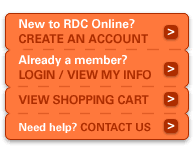Research says it all:
- Employees will stay if they have a good relationship and open communication with their immediate boss. (HRI Institute, 2001)
- Employees typically see the organization as they see their supervisor. (Tross & Egermann, 2005)
- As the job market improves and people find more employment alternatives, leaders will need to put more effort into retaining talent. (Gantz Wiley Research, 2004)
- The front-line leader is of critical importance in building engagement. (Gopal, 2004)
- The root of employee disengagement is poor management. (Gopal, 2003)
- Employees need bosses who care about them, and will help them achieve their goals. (Human Resource Institute, 2004)
- Much of engagement work must be done by first-line supervisors. (Bates, 2004)
- Employees who believe that the supervisor values their contributions and cares about their well-being believe that the organization on the whole supports them more, which in turn relates to decreased turnover. (Eisenberger et al., 2001)
References:
- Human Resource Institute (2001). "Loyalty and Commitment: A survey on Attracting and Retaining Workers."
- Tross, S. & Egermann, M. (2004) "Employee-Manager Relationship Duration: Effects on Perceived Supervisor Career Development Support & Voluntary Turnover." Society for Industrial and Organizational Psychology Annual Conference, April.
- Gantz Wiley Research (2004), "WorkTrends 2004."
- Gopal. A. (2004). "Flawed Assumptions Can Defeat Your Business," Gallup Management Journal, April 8.
- Gopal, A. (2003), "Disengaged Employees Cost Singapore $4.9 billion," Gallup Management Journal, October 9.
- Human Resource Institute (2004). "Reengaging the Workforce," TrendWatcher, Issue 211, May 7.
- Bates, S. (2004). "Getting Engaged." HR Magazine, 49(2).
- Eisenberger, R., Armeli, S., Rexwinkel, B., Lynch, P.D., & Rhoades, L. (2001). Reciprocation of perceived organizational support. Journal of Applied Psychology, 86. 42-51.
